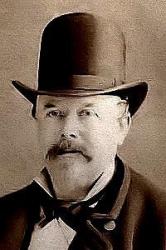1802 - 1862 Author of "Earth to earth and dust to dust, Lord, we own the sentence just" in The Evangelical Hymnal with Tunes Gurney, John Hampden, M.A., eldest son of Sir John Gurney, a Baron of the Exchequer, was born in Serjeants’ Inn, London, Aug. 15, 1802, and educated at Trinity College, Cambridge, where he graduated in 1824. On taking Holy Orders he became Curate of Lutterworth (1827-1844), and subsequently Rector of St. Mary's, Marylebone, and Prebendary of St. Paul's Cathedral. He died in London, March 8, 1862. The Society for Promoting Christian Knowledge and other religious societies had his cordial sympathy, and received his active support. His publications include several small volumes in prose, and the following:—
(1) Church Psalmody; Hints for the improvement of a Collection of Hymns published by the Society for Promoting Christian Knowledge, 1853; (2) A Collection of Hymns for Public Worship. Lutterworth, 1838. This contains 300 hymns, and is known as his Lutterworth Collection; (3) Psalms and Hymns for Public Worship, selected for some of the Churches of Marylebone. London, 1851. This collection of 300 hymns and psalm versions is known as his Marylebone Collection. The Preface is signed by "Charles Baring," "Thomas Garnier," and "John Hampden Gurney," but the work was practically done by Gurney.
To the Lutterworth Collection 1838, he contributed :—
1. Earth to earth, and dust to dust. Burial.
2. Great King of nations, hear our prayer. Fast Day.
3. Lord, as to Thy dear Cross we flee. Lent.
4. Lord, at Thy word the constant sun. Harvest.
5. Saviour, what wealth was Thine. Passiontide.
6. Soon to the dust we speed. Heaven anticipated.
7. Thou God of mercy and of might. Good Friday.
8. Thou plenteous source of light and love. Advent.
9. Thou Who of old didst raise. Ascension.
10. Through centuries of sin and woe. For Peace.
11. We praise Thee, everlasting God. Te Deum.
These hymns were all signed "J. H. G.," and Nos. 1, 2, 3, 7, 8, 9 and 11, were repeated in the Marylebone Collection, 1851; and to these were added:—
12. Fair waved the golden corn. Child's Hymn.
13. How vast the debt we owe. Offertory.
14. Lord of the Harvest, Thee we hail. Harvest. This is No. 4 above rewritten.
15. Lord, we lift our eyes above. Love of Christ.
In addition to these we are specially indebted to Gurney for, "We saw Thee not when Thou didst come" (q.v.), and "Yes, God is good," &c. (q.v.). Several of the above-named hymns are in extensive use in Great Britain and America. The most popular are annotated under their respective first lines.
-- John Julian, Dictionary of Hymnology (1907)
John Hampden Gurney


